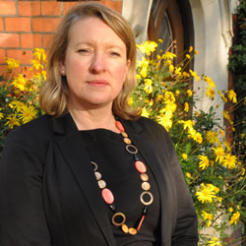Alison McKenna, the principal judge of the Charity Tribunal, has attacked the preference of many charity lawyers to settle disputes through the Charity Commission’s internal review process rather than through the Tribunal, saying it adds unnecessary expense for the charities involved and thwarts the original intent for the Tribunal to help evolve case law.
In a speech at Liverpool University last week to launch the Charity Law and Policy Unit’s new programme of activities, McKenna (pictured) addressed the question ‘Is the Charity Tribunal fit for purpose?’ and concluded that next year’s review of the Charities Act 2006 should include a review of the role and remit of the Tribunal.
She said the Tribunal had had 15 applications over the last two and a half years, a “slow start”, yet the type and complexity of those 15 cases had varied enormously.
Some of these involved arguments about detailed matters of law and a “room full of lawyers” with the inevitable consequence of high cost to the parties involved.
By contrast, she said, in cases where the litigants represented themselves, the Tribunal had been able to take a proactive approach to helping the appellants to make out their case. McKenna said she hoped there would be more such cases “with litigants in person or in-house lawyers or charities represented by the free advice agencies”.
“It should be the exception not the rule for parties to instruct counsel in a First-tier case,” she said.
McKenna also said she was “bewildered” by the high percentage of charities that choose to settle disputes through the Charity Commission’s internal review process rather than come straight to the Tribunal. “If a charity has limited resource to spend on challenging a decision of the regulator, it seems to me that charities will get more bang for their buck if they lodge an application with the Tribunal.” In many such cases the only legal advice the charity would pay for could be limited to some preparation time, she said.
“In those circumstances I do wonder why people are spending money on being legally represented through the internal procedure and I also ask rhetorically how the Commission can afford to dedicate its own resources to conducting internal reviews in the context of current financial restraints.”
McKenna pointed out that cases that are settled by internal review never make it into the public domain, thwarting the original legislative intent that new case law should evolve for the sector through Tribunal rulings. “The wider sector obviously cannot have its say on points of principle if the disputes are not made transparent, and so the settlement of most disputes through the internal process has, I feel, meant that is effectively the Commission rather than the sector which is choosing which cases come forward to set a precedent.”
The Commission’s recent adoption of lighter-touch and consensual regulation, and its decision to open less statutory inquiries, means that many of its decisions can’t be challenged in the Tribunal. While McKenna did not suspect “sinister motives” on the part of the Commission, the approach “has had the effect of diluting the Commission’s accountability system” and “does seem to be at odds with the intention of Parliament in establishing a Tribunal designed to stimulate the evolution of charity law”, she said.
“It seems to me that a rethink of the relationship between the internal review system and the Tribunal by the sector and by the Commission, is timely for all these reasons.”
‘Questions about the regulatory health of the sector’
A review of the Tribunal’s operation should be conducted as part of the review of the Charities Act, McKenna said, and should include consideration of the low number of cases that come to the Tribunal, “because it is at odds with the original estimate of 50 cases a year”.
“Some thought should be given to the question of whether the low number of cases raises questions about the regulatory health of the sector.”
McKenna also suggested that the Commission faces a conflict of interest in its dual role as regulator and respondent to a case, and one way to address this might be to confer on the Tribunal the power to authorise the expenditure of charity funds on bringing a case that it considers has merit.
“It seems to me that the absence of such a power may have served to discourage charities from using the Tribunal for fear that the Commission would deem the expenditure of charity funds on the case to have been inappropriate and that they might be directed to reimburse the charity.”
In conclusion, she urged the sector to engage in a debate about the issues raised when the Charities Act 2006 is reviewed next year.









